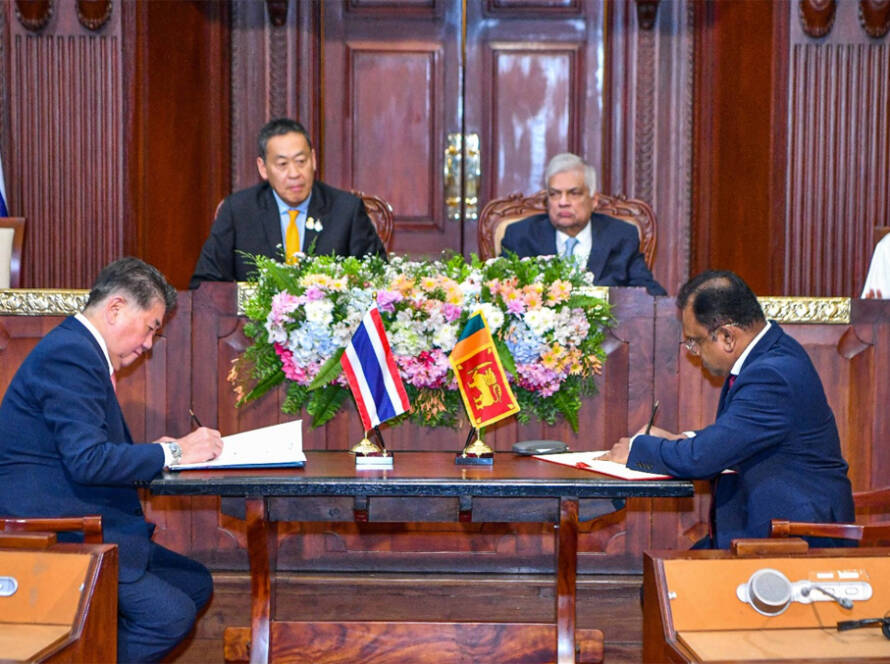By Flavia Gunarathna
In a landmark development, the United States and China have reached a pivotal agreement aimed at intensifying efforts to curb the export of chemicals vital in the production of fentanyl, a synthetic opioid responsible for a staggering number of fatalities in the United States.
The accord, anticipated to be formalized during the second summit between President Joe Biden and Chinese President Xi Jinping in San Francisco, represents a significant stride in addressing the global fentanyl crisis. The Biden administration views this potential deal as a noteworthy achievement in its ongoing commitment to combat the proliferation of fentanyl, a drug known for its potency and linked to a substantial number of deaths in the US.
The discussions between the leaders are expected to cover critical issues, ranging from tensions over Taiwan to concerns about U.S. export controls affecting China’s military modernization.
The background of fentanyl, as defined by the National Institute on Drug Abuse (NIDA) in the USA, sheds light on the potency and dual nature of this drug. Fentanyl is a powerful synthetic opioid, similar to morphine but exponentially more potent, making it a prescription drug used legally in medical settings.
However, its formidable strength has also led to illegal production and use. Like morphine, fentanyl is typically employed to treat patients with severe pain, particularly post-surgery. It is also utilized in cases of chronic pain where patients have developed a physical tolerance to other opioids. Tolerance, a phenomenon wherein higher or more frequent doses of a drug are required to achieve the desired effects, underscores the complexity of managing opioid medications.
One of the key components of the anticipated agreements is the reopening of military communication channels, previously closed by Beijing following a visit to Taiwan by then-US House Speaker Nancy Pelosi in August 2022. The restoration of these channels comes in response to escalating concerns about risky maneuvers by Chinese fighter jets in close proximity to US and allied surveillance aircraft over the South China Sea.
At the core of the negotiations is the fentanyl agreement, currently in its final stages, designed to obstruct the flow of precursor chemicals to Mexico, where drug cartels manufacture the lethal opioid. Despite prior attempts by Beijing to crack down on fentanyl production and export, Chinese companies found loopholes by supplying precursor chemicals to Mexico.
In response, the US Treasury recently imposed sanctions on 25 Chinese entities allegedly involved in the fentanyl trade, accompanied by indictments against Chinese companies and executives linked to the drug industry.
A notable point of contention has been China’s hesitance to restrict the trade of precursor chemicals, citing the US’s refusal to lift sanctions imposed during the Trump era on a Chinese police institute connected to a counter-narcotics laboratory. The potential success of the fentanyl agreement is deemed a significant victory for President Biden, aligning with his commitment to addressing the opioid crisis, a priority as he gears up for an upcoming presidential election.
As these details unfold, the meeting holds strategic importance in reshaping US-China relations, with both leaders navigating intricate issues that reverberate globally. The fentanyl agreement, if realized, signifies a collaborative effort to confront a critical public health challenge while simultaneously addressing broader geopolitical concerns.
In a parallel bipartisan effort, US Senators Dan Sullivan and Mike Rounds, joined by six colleagues, have underscored the devastating impact of fentanyl in the United States and emphasized China’s role in the fentanyl supply chain.
Their letter to President Biden calls for decisive action from China to curb the production and export of fentanyl-producing precursor chemicals, reflecting a shared concern about the escalating fentanyl crisis. The senators highlight the urgency of holding those responsible accountable and stress the importance of collaborative efforts, citing Mexico’s call on President Xi to halt the flow of fentanyl.
The fentanyl crisis has witnessed a significant rise in deaths, with a 24.1 percent increase in primarily fentanyl-related fatalities from 2020 to 2021, according to the US Centers for Disease Control and Prevention. The senators emphasize the critical need for prompt action from China to address the intensifying fentanyl crisis, urging President Biden to implore President Xi to halt the manufacturing of illicit fentanyl and hold China accountable for its role in contributing to the epidemic.
In summary, the combined efforts of both the US and China, marked by strategic agreements and bipartisan initiatives, underscore a shared commitment to combatting the fentanyl crisis. The medical implications of this decision cannot be overstated, as it signifies a concerted effort to mitigate the devastating impact of fentanyl on public health. As the details of the agreements unfold, the world watches closely, hopeful for a collaborative and effective approach to addressing this pressing global challenge.
Flavia Gunarathna is an undergraduate of Ragama medical faculty.
Factum is an Asia Pacific-focused think tank on International Relations, Tech Cooperation, and Strategic Communications accessible via www.factum.lk.
The views expressed here are the author’s own and do not necessarily reflect the organization’s.


